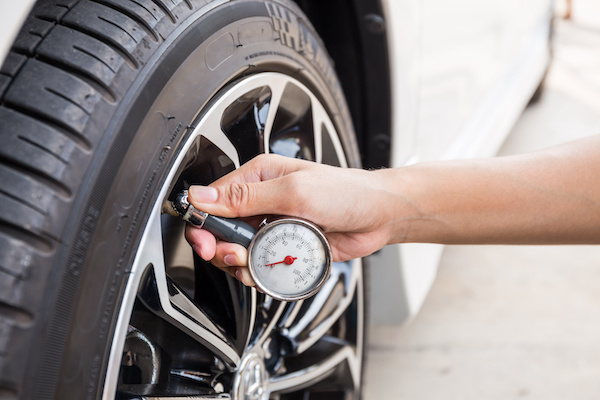Posted on 4/25/2022

Tire pressure is a crucial factor to consider every time you hit the road. When the pressure is not up to standard, car handling becomes difficult, and you end up using more fuel on the road. To make sure your tire pressure is right, you will need at least one of two tools: the tire pressure gauge or the air compressor. Using these tools is easy and convenient. So how do you put these tools to use? The tire pressure gauge performs two functions. It saves you time and energy, not to mention it is efficient. For about $10, you can acquire your own. The gauge, also referred to as the pencil gauge, comes in analog and digital options. The gauge checks for the tire pressure and also inflates the tire. Using the gauge is simple, and you can undertake the procedure without an expert. All you need to do is attach the gauge to an air compressor hose. Press the gauge on the open valve. You will hear a hissing sound. The hissing sound is normal. Press the lever to inflate the tire if the readin ... read more
Posted on 3/21/2022

There's no better way to kickstart this season than "spring cleaning" your car. And suds aren't the only thing your car may need this spring. With a new season comes a new list of maintenance items your beloved automobile may need. Here are some of the areas that may need to be checked: Tires Some drivers may consider adding all-season or summer tires to their vehicles. More importantly, all drivers should check two crucial things: tire pressure and tread depth. Doing so will promote even tire wear and safer driving. Additionally, having your tires rotated is a good idea as well. Wipers When was the last time you changed your wipers? If it has been at least nine months, you may want to consider swapping them out. When wiper blades deteriorate, they will leave streaks, hindering your visibility. Therefore, you're better off replacing them this time of year. Oil Oil changes are the most important type of maintenance that you can offer y ... read more
Posted on 2/24/2022

You don't need an expert to tell you that loud and noisy brakes mean they're going bad. Odds are, you've probably heard them from other vehicles on the road before. Your vehicle's brakes are super essential when it comes to your safety, which is why you should never give them a second thought if you suspect a problem. Here are some persistent sounds that your brakes might make to signal a problem: Squealing - Brake pads often have indicators built-in that rub against the brake rotors to make a metallic squeak when they need to be replaced soon. Whenever you catch this sound, it means you should replace the pads soon. It can also be due to debris stuck between the brake pad and rotor or glazing in some circumstances. Grinding - When you've entirely worn down your brake pads, they will make a grinding sound. In this case, you should pull over to confirm and call a tow if necessary. Clicking - Rotors and calipers work in conjunction with your brake pads to stop your ... read more
Posted on 1/31/2022
.jpeg)
Automobile radiators are essential to keep your vehicle from overheating. Every car has a radiator that helps maintain your engine temperature by pushing antifreeze or coolant through to and from the engine. Without a working radiator, your motor runs the risk of overheating, leading to costly and time-consuming repairs. How Do They Work? Radiators pass called coolant through thin metal fluid lines, referred to as fins. These fins draw heat away from the engine block. This process is regulated by your vehicle's thermostat's opening and closing. In simple terms, the radiator cools the coolant, which cools the engine. It's a constant process that takes place whenever your car is running. Engine Overheating Issues When any of your cooling system parts malfunctions, including the radiator, the entire engine could be at stake. Engine overheating happens when there is not enough coolant circulating to and from your engine. One common cause related to the radiator is coolant l ... read more
Posted on 12/22/2021

With the New Year approaching, millions of people worldwide are set to make their resolutions. Have you included your car in your New Year's resolutions? A car is something you use daily. It's worth making a commitment to it just as you would for your health or any other personal goals. The start of a new year is the perfect time to pledge better care for your vehicle and become a safer, more responsible driver. Next year, you can make yourself a better car owner and road traffic user by following these helpful tips. Make Vehicle Maintenance A Habit Regular maintenance and inspection of motor vehicles keep them in tip-top shape so they can serve you better in your travels or daily commutes. You'll catch problems before they get worse or too expensive. Be A Better Driver Pay attention to your surroundings, especially traffic signs, pedestrians, and other motorists or road users. Staying alert keeps you and others safe. Obey the road rul ... read more